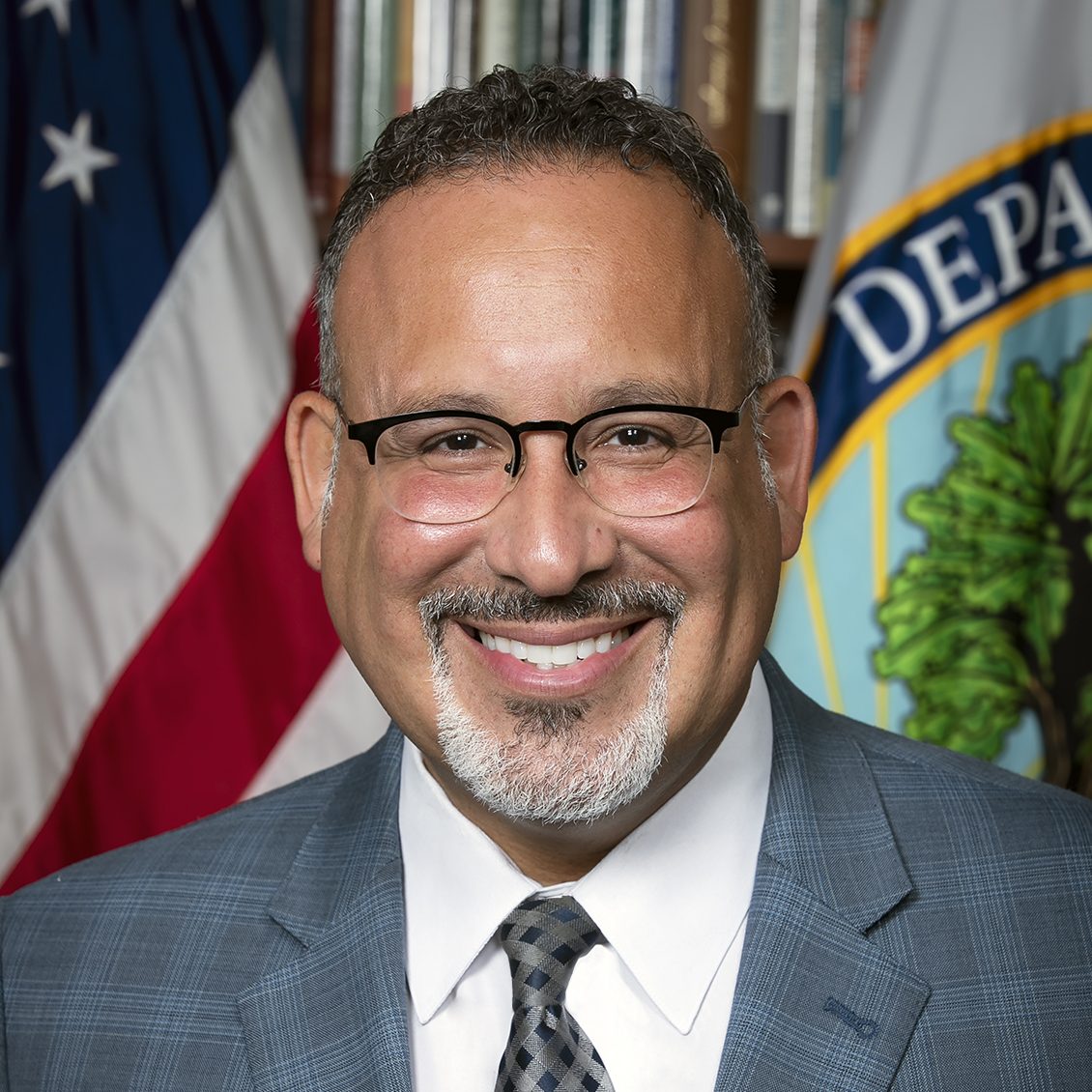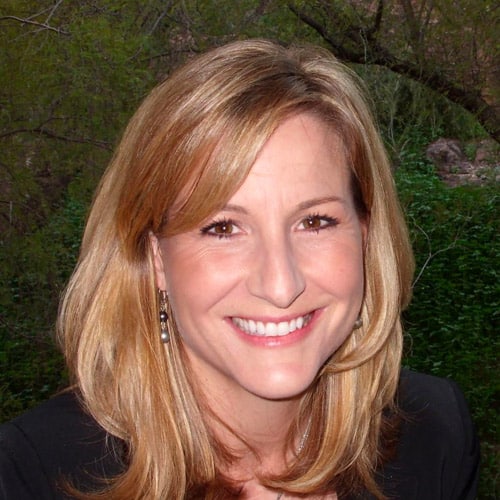Access Symposium 2021 video recordings, slides, and other resources shared by presenters by clicking the links below.
Day 1 Opening Keynote Plenary
11:00 AM – 11:45 AM ET
Building a Brighter Tomorrow: Redesigning Education and Innovating Systems to Enable Each Child to Thrive
Secretary Cardona’s opening keynote will draw from his own experiences as a lifelong educator while creating a vision for the future of education with a specific focus on personalized learning, competency-based pathways, and innovations that seek to advance equity. This inspirational talk will share insights for future-focused district and school leaders, teachers, and other educators who are reimagining education and redesigning local systems to drive educational equity and excellence for all students. Incremental change is not enough. It is time to transform learning environments to give every student the personalized competency-based pathways, modern resources, and student-centered learning opportunities they need to succeed.
To advance equity, we must innovate, share promising practices, and work together to create the education system that all of our students deserve, a system where students are at the center. This is a moment in education to boldly address inequities in the system. This is our opportunity to ensure that we rethink, redesign, and reimagine how teaching and learning should be and engage students in co-designing their future. These new student-centered learning designs shift structures of ranking and sorting our youth, shift pedagogy to be active and engage student voice and choice differently, and shift culture to demand that students become powerful future makers with more agency, and adapt our systems to be more responsive and better than ever before.
Join this keynote to hear the U.S. Secretary of Education Miguel Cardona’s call to action to lead transformation in education, to redesign toward highly personalized, competency-based learning systems that create equitable pathways for each child to thrive. Secretary Cardona will discuss the federal education priorities in place to advance innovations.

Miguel Cardona, Secretary, U.S. Department of Education
Dr. Miguel A. Cardona currently serves as the 12th Secretary of Education. Secretary Cardona is a lifelong resident of Meriden, Connecticut and is proud alumnus of Meriden Public School. Following his time in Meriden Public Schools, he attended CCSU for his bachelor’s degree and UCONN where he completed Master’s in Bilingual/Bicultural Education, Administrator Preparation Program, Doctorate in Education, and Executive Leadership Program (Superintendent) Certificate.
Since beginning his journey as an educator, Secretary Cardona has served as an elementary school teacher, school principal, the Performance and Evaluation lead administrator, Assistant Superintendent, and most recently Commissioner of Education for the State of Connecticut. Under Secretary Cardona’s oversight – despite the pandemic – Connecticut launched a statewide FAFSA Data Dashboard; procured a comprehensive statewide Special Education Data System (CT-SEDS); announced the State’s highest ever extended graduation rates for students with disabilities and English Learners; reached a new stipulated agreement in the landmark school integration case Sheff v. O’Neill, established the first national requirement for high schools to provide courses on Black and Latino studies; and initiated systemic improvement protocols that can reach every corner of the state. His focus on equity and excellence for all learners has driven his work at all levels.
His greatest source of pride, however, is his family. Secretary Cardona and his beautiful wife Marissa are the proud parents of two children.
Plenary II
11:00 – 11:45 AM ET
Meeting the Moment to Build a Better Future
We have to think bigger and bolder to ensure that we can help every student move further, faster. There is increasing demand from parents and momentum for change. Ninety-one percent of parents believe we should be reimagining K-12 education. Today, we have a window of opportunity to move some state funding systems toward more equitable funding formulas and resources that can support truly student-centered learning. We need to deepen expertise and broaden the context of these discussions to account for our country’s systemic racism in the creation and implementation of these education policies and to drive equitable futures. We can’t tutor our way out of the challenges. The loss of learning time has affected every student. We need to develop approaches that will accelerate student learning and get to grade level and beyond.
The time to change is now. The upheaval of the past year is driving calls for change beyond the usual communities of education reformers and researchers, providing a unique opportunity to push for transformation at scale. Join us for this opening keynote address for a discussion around:
- Recognition of how long standing weaknesses of our education systems are reaching a tipping point.
- Renewed calls for racial and social justice are revealing flaws the current system can’t address.
- Advancements in the learning sciences research and new technologies are strengthening the impetus for change.
- A historic influx of federal funding provides an unprecedented opportunity for investing in the future of learning and modernization.
- Demand for change is coming from all directions.
The COVID-19 pandemic, compounded by inadequate reckoning with addressing systemic racism in our country, and unprecedented recovery investments by the federal government, are opening historic opportunities to fundamentally rethink our education systems and structures to create the conditions for all students to thrive. There has never been a greater time to reimagine education systems.

Susan Patrick, President and CEO, Aurora Institute
Susan Patrick is the President and CEO of Aurora Institute and co-founder of CompetencyWorks, providing policy advocacy, publishing research, developing quality standards, and driving the transformation to personalized, competency-based education forward. She is the former Director of the Office of Educational Technology at the U.S. Department of Education, and served as legislative liaison for Governor Hull from Arizona. She served as legislative staff on Capitol Hill. Patrick holds a master’s degree from the University of Southern California and a bachelor’s degree from Colorado College. She is a Pahara-Aspen Fellow and an USA Eisenhower Fellow in 2016.

Fred Jones, Policy Director, Aurora Institute
Fred Jones is Policy Director at the Aurora Institute. He leads the Center for Policy team, conducting federal and state policy analysis, providing technical assistance to elected officials, and offering strategic guidance to advance the Aurora Institute’s mission. Fred began his career at the U.S. House of Representatives, working for the Education and Labor Committee. He also worked as a Legislative Associate for the Alliance for Excellent Education and the Director of Government Affairs for the United Negro College Fund. Prior to joining the Aurora Institute, he served as the Director of Government Affairs and Public Policy for the Southern Education Foundation. Fred holds a bachelor’s degree in Political Science from Tufts University, and he earned an MBA from the University of Maryland, College Park Robert H. Smith School of Business. He has a beautiful wife, a toddler son, and an infant daughter.
Day 1 Sessions
12:00-1:00 PM ET – Breakout Sessions
1:15-2:15 PM ET – Breakout Sessions
Transformative Learning Experiences in Post-COVID-19 School: Lessons from an Alternative School on Re-Engaging Youth in their Learning
2:30-3:30 PM ET – Breakout Sessions
Designing a Personalized, Competency-Based Learning System of Professional Learning: Placing Collaboration, Flexibility, and a Bias Towards Action at the Core
3:40-4:00 PM ET – Power Sessions and Programs to Watch
